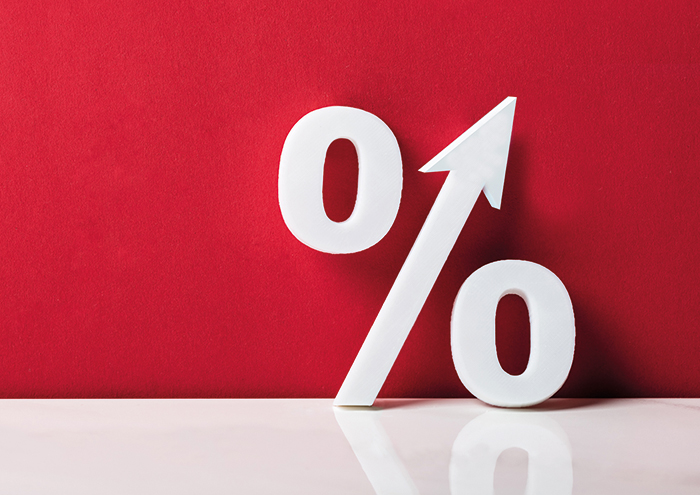
The Bank of England (BoE) has increased the base rate by 25 basis points to 4.25%.
The Monetary Policy Committee (MPC) voted for this change by a majority of 7-2, with the minority vote wishing to keep the rate at 4%.
This follows the BoE upping the base rate by 50 basis points to 4% in early February this year.
Just yesterday, 22 March, the Office for National Statistics released figures showing that the inflation rate hit 10.4% in February, up from the 10.1% figure seen in January.
Yesterday also saw the US central bank raise interest rates by 25 basis points to a target range of between 4.75% and 5%.
The MPC notes ‘large and volatile’ moves in global finance, with the failure of Silicon Valley Bank and the acquisition of Credit Suisse by UBS in particular being highlighted, but adds that that the Financial Policy Committee believes the UK banking system ‘maintains robust capital and strong liquidity positions.’
Regarding today’s move by the BoE, Evelyn Partners investment strategist Nathaniel Casey says: “The recent turmoil in the banking sector, which began with collapse of Silicon Valley Bank nearly a fortnight ago, has reminded central banks that things can break when monetary policy is rapidly tightened.
“Although contagion risks from the tech bank crisis and Credit Suisse look to have receded for the time being, the BoE will need to tread carefully if it decides to further tighten monetary policy from here. The Bank recently acknowledged that ‘more sharp moves in asset prices could expose weakness in parts of Britain’s financial system’ in a letter to lawmakers.
“As its primary objective is bringing inflation back towards target, the MPC had little choice but to raise again, as the evidence has been pointing towards continuing price pressures. Yesterday’s inflation data will have ruffled a few feathers among hawks.”
And LV= chief investment officer Adam Ruddle says: “The [BoE] is in a difficult predicament. On the one hand, inflation in February unexpected increased, leaving the UK inflation higher than the US and Eurozone.
“On the other hand, there are some signs that previous increases are weakening the housing sector and hurting the economy; added to that, the recent banking turmoil is in itself a disinflationary pressure.
“We believe the Bank has sought to balance these considerations whilst remaining clear that managing inflation down is its key responsibility – even if that means subdued economic growth.”
Meanwhile, SPF Private Clients chief executive Mark Harris comments: “While 4.25% may not be the peak for base rate, it is unlikely to be far off.
“Fixed rates are influenced by future base-rate movements and therefore not directly linked to what is decided this week. Indeed, several lenders have reduced their fixed-rate mortgages in the past few days on the back of declining Swap rates, with five-year fixes now cheaper than base rate.
“The cumulation of 11 successive rate rises is significant. A borrower with a £250,000 mortgage on a tracker pegged at 1% over base rate will have seen their monthly payments rise from £943 in December 2021, when base rate rose from 0.1% to 0.25%, to £1,498 today.
“With a variable-rate deal, the link between the lender’s variable rate and base-rate moves are less transparent. The lender may decide to pass on none, some, all or even more than the base-rate rise.”